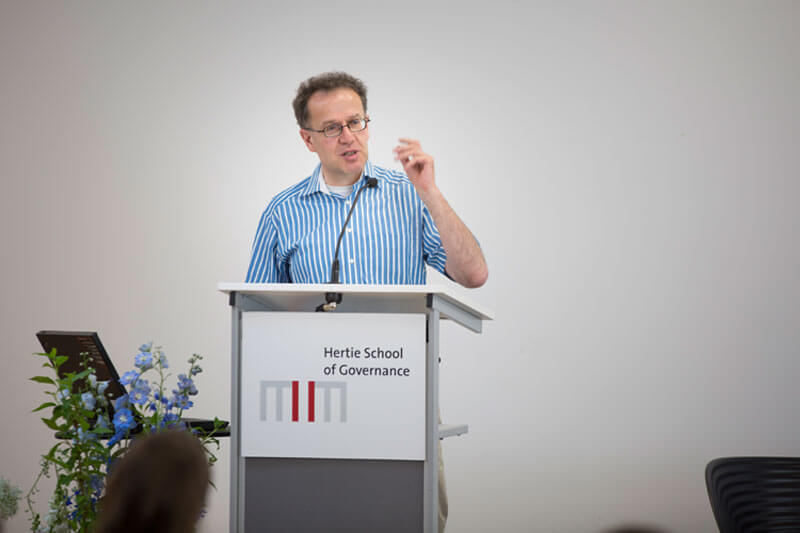
Markus Jachtenfuchs tells us why referenda are no cure-all.
In the immediate aftermath of the British vote on leaving the EU, an increasing number of voices point to its potentially catastrophic consequences. It is not completely unrealistic that instead of growing unrestricted by EU rules, the UK tumbles into a long recession; that instead of putting former EU contributions into the underfinanced National Health Service, the NHS receives less money than before due to declining tax revenue; that instead of controlling immigration, the UK has to accept the free movement of EU labour in return for access to the EU’s market; and that instead of ‘taking back control’, it has to accept a large share of EU rules, but has no say in their adoption.
The dust has not yet settled, and the situation may change over time. But the Brexit vote has also fueled a long-standing debate about the role of referenda in general and in relation to the EU. In the UK, even remain supporters state that the referendum gave a clear mandate, and the government now has no choice but to leave the EU. This cannot be undone by a parliamentary vote, general elections or even another referendum, they say. In other EU member states, populists are also calling for referenda on their countries’ EU memberships. Others see more referenda as a means to involve citizens more closely in politics. Their common ground is that referenda express the will of the people against an unresponsive political class, and that referenda outcomes trump parliamentary decisions. However, democracy is more complex than that.
There is simply no ideal procedure for transforming citizen preferences into political choices. Instead, there are a huge variety of procedures, each of which has advantages and disadvantages. Presidential systems such as the US are different from parliamentary systems such as the UK; UK style majoritarian voting systems are different from the proportional voting systems in Sweden or Finland; systems such as Switzerland with frequent referenda are different from systems with no referenda on the federal level such as Germany. People may have strong views on which system they prefer. But all these countries are beyond any doubt democratic. None of them is more or less democratic because it has stronger or weaker parliaments, a majoritarian as opposed to a proportional voting system or because it uses more or less referenda.
Also, referenda should not be seen in isolation, but in their democratic context. In some countries, referenda are called by the head of the executive. Such referenda are usually rare and often turn out to be popularity contests of the President or prime minister, rather than answers to the question at stake (the 1992 referendum on the Maastricht Treaty in France is a case in point). The other extreme is the Swiss case, where referenda can emerge from popular initiatives. In Switzerland, referenda are frequent and function as a counterweight to the all-party composition of the Swiss Federal Council. In some cases, referenda results are binding, in others, they are not binding. In all cases, referenda are part of the democratic process along with other elements, but not a more genuine expression of the will of the people than for instance general elections. What is appropriate and functional in Switzerland may not be easily transferable to other countries.
Referenda take place in particular political, economic or social circumstances. They are not exercises in truth-seeking discourses sheltered from power, but rather subject to massive political agency, media influence and campaigning. The degree to which voters had an ‘enlightened understanding’ of the issue at stake (one of the five criteria of democracy advanced by the political theorist Robert Dahl) is important for assessing the democratic quality of the process. If important new information is available after a decision, there are good democratic reasons to reconsider this decision. Referenda are not different from general elections in this respect.
Finally, referenda – like any other democratic decisions – should as far as possible follow the congruence principle: Those who are affected by a decision should also have a say in it. A referendum in a country of 10 million inhabitants that prevents a decision by a community of more than 500 million inhabitants has problematic democratic credentials. Freeriding sanctioned by a referendum is still freeriding on others.
In sum, referenda are an important part of the democratic process. But they are not necessarily superior to other forms of democratic decision-making and should be seen in combination with these. The Swiss experience of frequent bottom-up referenda combined with a consensual system of government is as democratic as the German perception of referenda as top-down instruments sensitive to manipulation and instrumentalisation in the Weimar Republic. Playing out referenda as the ‘true’ expression of the popular will against decisions by democratically elected parliaments weakens democracy instead of strengthening it. Referenda are one among several possibilities for transforming voter preferences into political decisions with advantages and disadvantages like any other procedure.
More about the author
-
Markus Jachtenfuchs, Professor of European and Global Governance
